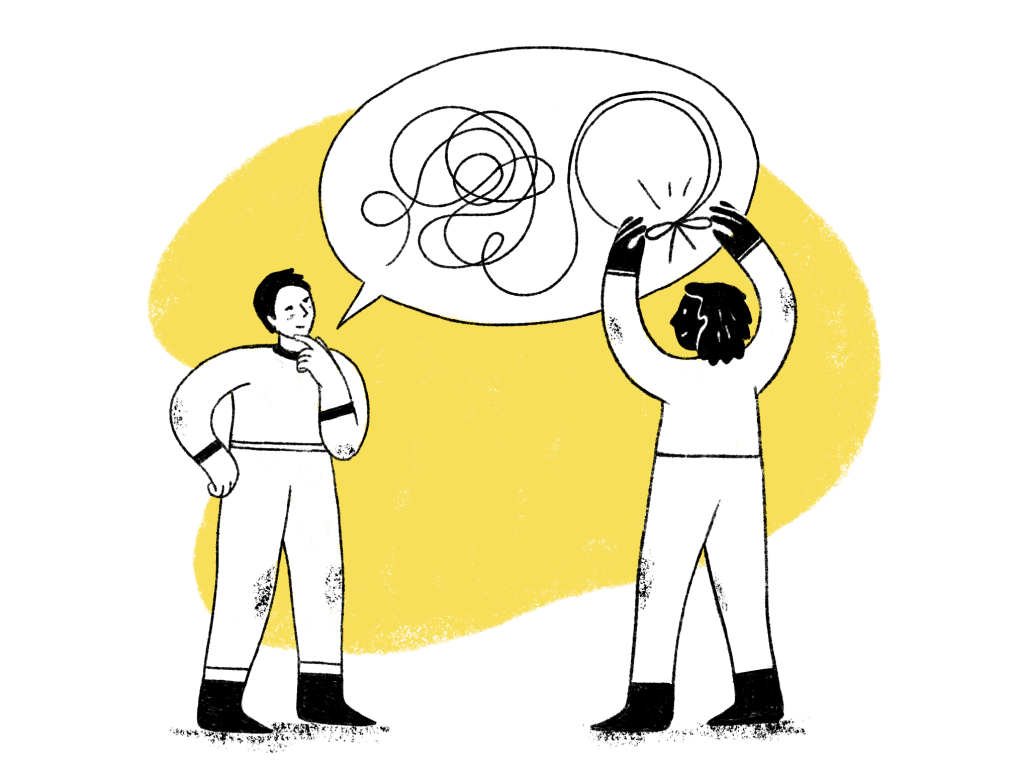
7 March 2023
3 min.
Leadership
14 November 2022
4 min.

Are you the type of person who takes action as soon as someone asks for your help on a project?
Or do you listen to a colleague’s exasperation with an employee, only to find yourself meeting with the employee to clarify a situation that didn’t concern you at first?
Are you reading this and saying: Oh, that’s exactly what I’m doing!
Do you know Atlas? Atlas is the Greek God who carried the earth on his shoulders. Well, unless he’s your grandfather; you don’t have to carry the earth on your shoulders!
All kidding aside, it’s pretty flattering to feel useful and recognized for your advice and involvement. But here’s where it gets tricky: when you see the list of situations you’ve committed to dealing with growing longer.
Did you know that there is an approach that allows you to help your colleagues without overwhelming yourself with tasks, and that also promotes the development, success and growth of each individual?
The key to this approach? Open-ended questions.
By asking open-ended questions, you help your colleagues discover solutions to their difficult situations or problems themselves.
And you do this without compromising the rewarding aspect of your role.
Think of it this way: in the past, you took the problem on your shoulders and went off to fix it. With the open-ended approach, you will be the person they come to see to allow them to think about an issue in greater depth, or to refine an action plan to address it.

To begin with, you must listen to the other person, taking care not to give advice, points of view, or to try to reassure them by offering your help. Welcome the silences, make sure to let the other person refine their thoughts, and give them the space to speak.
Afterwards, start asking open-ended questions. By showing genuine curiosity, ask your colleague to expand on their ideas. By doing so, you encourage them to think on their feet and to be independent.
Watch for silences and resist the temptation to fill them. Tolerate those few seconds of emptiness even if they are uncomfortable. Perhaps you’ve offered your colleague some unusual angles to think about with your questions? Give them time to think about their response. This will give them the opportunity to express their point of view.
When the person you are talking to seems to have come to terms with the issue, if your view of the situation includes a different perspective, offer to share your impressions.
Offer it in the form of a choice: “I have some impressions about what you just discussed with me, do you want me to share them with you?”

To respond effectively to the other person’s need, you can start by asking if and how you can help, and try to get a concrete answer. Your conversation will take different angles if your colleague needs a listening ear, a moment to vent, to receive advice, to think about possible solutions, or to take a step back.
Choose your words, especially at the beginning of the conversation.
Opt for questions that begin with what, who, how, when, which, etc. Avoid using whys. Whys tend to put the other person on the defensive or make them feel like they have to justify themselves. This is not the direction you want the conversation to go. Instead, shift into curiosity mode and create a context for trust, growth, and empowerment.
In the event that the other is looking for solutions, you can ask:
To a colleague who is experiencing conflict with an employee, try questions like:
To a person who needs career development guidance, try:
To someone who is trying to understand why a situation went wrong, you might offer some food for thought such as:
The goal here is obviously not to follow a script. Rather, it is to have an assortment of questions in mind that will allow the other person to take responsibility for their thoughts. And above all, not to take the problem on your shoulders!
Develop your skills and those of your colleagues, continuously, with coaching!
